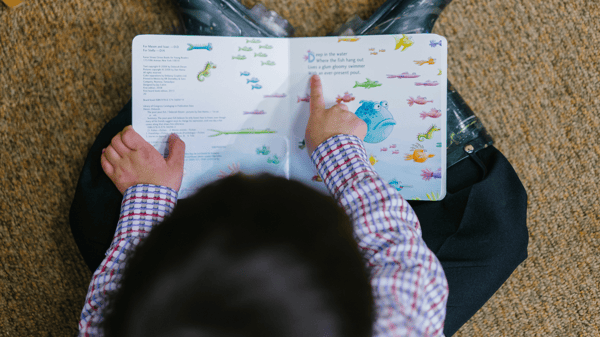Dyslexia is a learning difference that impacts a child’s reading fluency, causing difficulty with reading, writing, and spelling. But like all learning differences, Dyslexia has no impact on a child’s intelligence and instead challenges students, their parents, and their teachers to identify effective coping mechanisms and study strategies.
It’s important to be able to recognize symptoms of dyslexia in children at an early age so that parents can seek guidance if necessary. Schools for learning differences provide specialized programs taught by teachers who have professional education specific to working with children with dyslexia.
- Symptoms of Dyslexia
- Avoiding reading, writing, and math
- Labor-intensive reading and writing
- Frequent mispronunciations and misspellings
- Struggling to distinguish similar sounds and words
- Struggling to sequence or summarize a story
- Struggling to retrieve words
- Struggling with memorization

These symptoms can be present both inside and outside of the classroom. In addition to the above symptoms, children with dyslexia may begin to feel frustrated and develop anxiety about subjects where they experience the most difficulty, like literature and math.
Ways to help Your Child With Dyslexia
If your child has been diagnosed with dyslexia, the following steps can be taken to help them overcome the obstacles that their learning difference presents and build more confidence:
- Use line readers to make it easier to keep their place while reading
- Use colorful keyboard overlays with larger letters to make typing more accessible
- Maintain consistent daily routines, and make sure they have plenty of time for homework
- Evaluate performance by a child’s effort and ideas
- Combine verbal and visual information, including step-by-step instructions

HOW Eagle Hill Implements Specialized Learning
The classrooms at Eagle Hill School host accommodations for students diagnosed with dyslexia and the faculty leverages individualized teaching strategies for every student. Class sizes are small, allowing for individualized instruction, and classes are grouped by skill-level, not by grade. Recognizing that inclusivity is key to encouraging a child’s confidence, EHS fosters a community where students can achieve their maximum potential—at a pace they’re comfortable with—surrounded by friends and faculty who are rooting for their success.
ABOUT EAGLE HILL SCHOOL
Eagle Hill School is a private school for learning differences located in Greenwich, Connecticut. Their academic program is designed to help students struggling with dysgraphia, and other differences such as dyscalculia, dyslexia, ADHD, executive functioning disorder, and auditory processing disorder. Specialized remedial learning programs are taught by experienced teachers who help students navigate through learning challenges, preparing them for bright futures ahead.
Other blogs you may be interested in:
How Children with Learning Differences Can Benefit from Artistic Expression
Resources:
Katherine Martinelli (2019, June 24). Understanding Dyslexia. From https://childmind.org/article/understanding-dyslexia/


